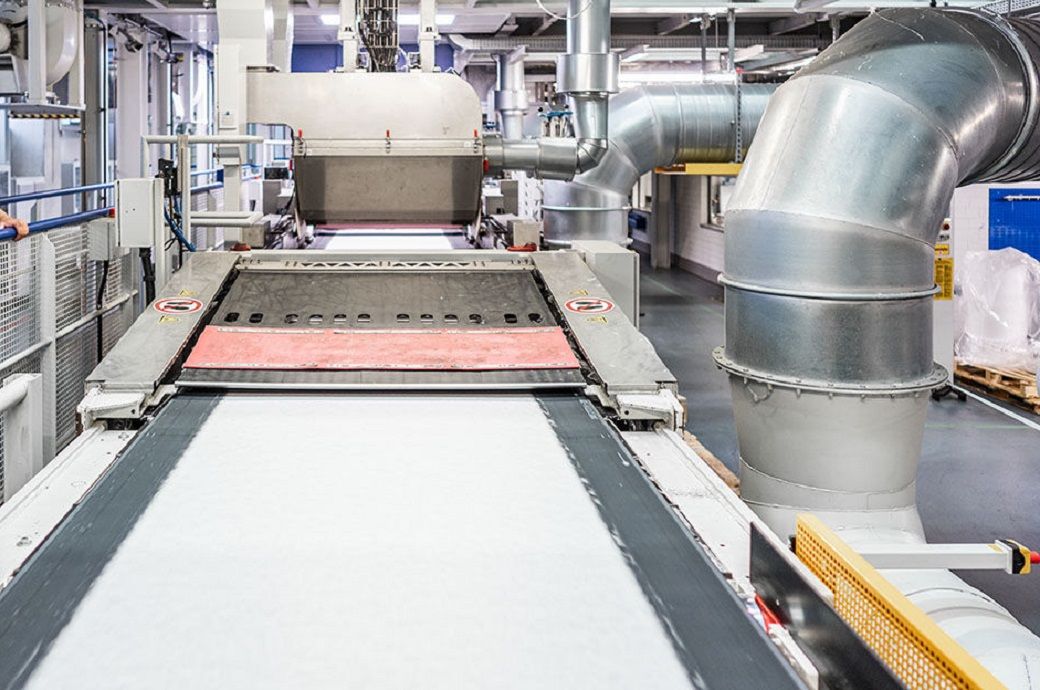
The new technology is an evolution of the proven RF5 platform and uses the patented BiCo process to combine two different raw materials in one fibre during the spunbond process, resulting in a weight reduction of up to 25 per cent for fibre sizes at 1.0 denier. The thickness of the material can also increase by up to 30 per cent compared to state-of-the-art material. The platform is equipped with energy-efficient components, allowing for resource-saving nonwoven production at high line speeds, the company said in a press release.
All raw materials used in the production process are made of polypropylene (PP) to reduce waste and enable simple and efficient inline recycling. Additionally, the platform can process bio-based raw materials upon request to meet the growing demand for sustainable nonwoven products.
To improve production efficiency, the RF5 XHL platform incorporates c.Hub, the new data connection platform of the Reifenhauser Group. Customers can securely network the data of their Reicofil lines, peripherals, and ERP and MES systems via the c.Hub middleware to store it centrally for easy analysis. Line operators can then monitor and document their production and increase production efficiency based on data.
"Thanks to highly crimped fibres with reduced fibre size, our XHL nonwovens offer a new level of quality with super soft touch for nonwoven products made from them—such as top sheet and back sheet," said Markus Muller, vice president sales and marketing of the Reifenhauser Group. "At the same time, we achieve a huge improvement in the carbon footprint of up to 30 per cent thanks to reduced resource use."
Fibre2Fashion News Desk (DP)

